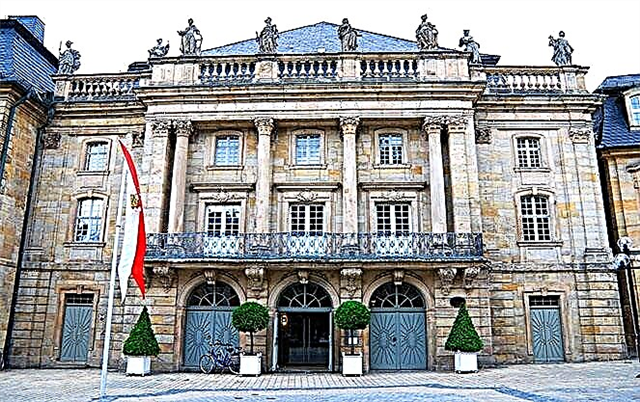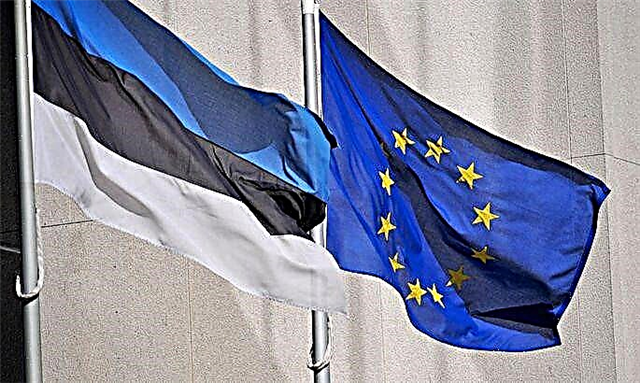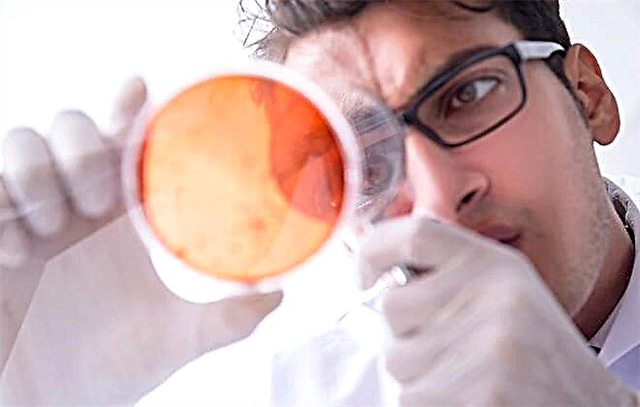Treatment of blood cancer in Israel is considered one of the most effective in the world due to the use of the latest generation of chemotherapy drugs, targeted and radiation therapy, bone marrow transplantation. What are the features of the diagnosis and treatment process and how much it may cost to stay in an Israeli clinic, we will understand in more detail.

What is blood cancer?
The term "blood cancer" (hemoblastosis) is a collective name used in relation to a number of malignant formations in the hematopoietic system. With hemoblastosis, the process of hematopoiesis is disrupted, which manifests itself in the excessive synthesis of young, immature blood cells that are unable to perform their function. Over time, their number increases and they spread to other organs.
The causes of this disease are conditionally combined into 4 groups:
- living in areas contaminated with radioactive isotopes, working at a nuclear enterprise, contact with X-ray equipment;
- direct radiation exposure;
- genetic predisposition;
- infectious viral lesion.
Before organizing the treatment of leukemia in Israel, you need to go from detecting the disease to its accurate diagnosis.
At the initial stage, the disease practically does not manifest itself in any way, which makes it difficult to identify at an early stage. The first signs of cancer are mild and difficult to attribute to cancer symptoms. For example, in children, this may be:
- increased fatigue;
- sleep disturbance or, conversely, drowsiness;
- memory impairment.
The initial nonspecific signs of leukemia are intolerance to certain odors and tastes, periodic fever, slow wound healing, and a tendency to suppuration and nosebleeds.
At a later stage, leukemia can be recognized by more specific signs:
- yellowness of the skin and pathological pallor;
- sharp weight loss;
- enlargement of the spleen and liver, which can cause heaviness in the hypochondrium;
- small rash;
- bloating;
- bleeding of the mucous membranes;
- enlarged lymph nodes.
Symptoms may be more specific depending on the type of cancer.
Types of blood cancer
According to the site of localization, blood cancer can be divided into two types:
- Hematosarcoma - malignant formations that develop outside the bone marrow.
- Leukemia - its formation is carried out by bone marrow cells.
All leukemias (the old name "leukemia") can be divided into two groups - acute and chronic. In acute leukemia, cell development is practically absent. The disease is characterized by a large accumulation of immature cells already at an early stage. Chronic leukemia provides a population of abnormal cells that gradually replace normal cells.
Acute leukemia can be classified into the following subtypes:
- Acute lymphoblastic leukemia (ALL) - normal lymphocytes are replaced with sick ones. It is accompanied by intoxication and decreased immunity. Treatment in Israel of acute lymphoblastic leukemia is one of the most common cases of treatment among children (75-80% of all diseases of the hematopoietic system).
- Erythromyeloblastic leukemia - increased growth of normoblasts and erythroblasts (stages of development of erythrocytes) in the bone marrow, an increase in the number of red blood cells.
- Myeloid leukemia is a genetic disorder of the development of blood cells and a deficiency of leukocytes, erythrocytes, or platelets.
- Megakaryoblastic leukemia is an increase in the number of undifferentiated blasts and megakaryoblasts in the bone marrow. Most often affects patients with Down syndrome.
Treatment of chronic leukemia in Israel depends on its type:
- Megakaryocytic - a change in the stem cell, the appearance of various pathologies in the bone marrow, an increase in the number of platelets.
- Myeloid leukemia - affects mainly men after mutation of bone marrow cells occurs.
- Lymphocytic leukemia - characterized by the accumulation of leukocytes in the tissues of various organs.
- Monocytic leukemia - characterized by a sharp increase in the number of monocytes in the blood.

Diagnostic methods
Treatment of acute myeloid leukemia in Israel or another form of blood cancer begins after a doctor's consultation and diagnosis. It is possible to make an accurate diagnosis with the help of instrumental and laboratory studies:
- a general blood test, a test for tumor markers and biochemistry. It is possible to detect a cancerous tumor by a low level of hemoglobin, a small number of platelets and a sharp increase in the number of leukocytes;
- bone marrow biopsy and histological examination;
- Ultrasound of the lymph nodes;
- PET-MRI and PET-CT allow examining internal organs and detecting signs of the disease at an early stage;
- genetic testing of blood cells;
- imaging tests - performed to examine areas of the body in which cancer is present;
- osteoscintigraphy - allows you to identify changes in bone tissue;
- a gallium scan examines the affected lymphatic tissue.
The set of diagnostic procedures is determined by the attending physician during the consultation.
How is blood cancer treated in Israel
Very often, patients diagnosed with hemoblastosis are offered to undergo cancer treatment in Israel as part of a clinical trial program. One of the latest developments is CAR-T cell therapy, an adaptive cell therapy that transforms the patient's cells so that they find malignant areas in the body and neutralize them.
Chemotherapy as the main treatment for cancer
Chemotherapy is the leading treatment for blood cancer. It is based on the use of cytotoxic agents that kill tumor cells. Terms, types and doses of drugs are prescribed to each patient by the attending physician individually.
Usually, chemotherapy is prescribed as a combination of drugs, which makes it possible to achieve great results. The course includes several cycles to allow the body to take a break from toxic substances.
The drugs are administered intravenously or into the cerebrospinal fluid. Chemotherapy can be applied systemically (to the entire body) or directed (to specific areas).
Additional techniques
As an additional method, targeted immunotherapy is often used - the effect on the tumor of inhibitors and monoclonal bodies that affect the immune system. Such treatment is focused only on a certain type of cells and does not affect healthy tissues.
Other methods include radiation or radiotherapy - the use of X-rays to destroy tumor cells and reduce its size. This method also has an exclusively local effect.
Treatment is carried out in small doses. In Israeli clinics, linear accelerators are actively used, which make it possible to direct the beam as accurately as possible directly into the tumor.
Treatment of chronic lymphocytic leukemia in Israel and other types of blood cancer is carried out using the innovative Trojan horse method. This technology is based on the needs of the tumor for the amino acid asparagine: cancer cells absorb the resulting substance, perceiving it as asparagine containing another acid that has a destructive effect.
Bone marrow transplantation
Treatment of bone marrow cancer in Israel involves the use of surgery only if the spleen or lymph nodes are significantly affected. Stem cell transplantation is one of the most advanced methods.It is most often prescribed with high doses of radiation and chemotherapy to restore balance in the body.
There are two types of transplantation:
- Autologous - collecting, processing and replanting the patient's own cells after carrying out aggressive chemical exposure to them. It is used for myelomas and recurrent lymphomas.
- Allogeneic - transplantation of cells that are taken from another person. The donor can be a relative or someone with similar blood characteristics.
Key features of diagnosis and treatment of leukemia in children
Children with blood cancer are less active than their peers. They are more irritable, it is difficult for them to get up in school or kindergarten, they have practically no appetite. Since such signs are typical for many other diseases, parents need to pay attention to the duration of their manifestation.

Treatment of pediatric oncology in Israel is carried out taking into account the fact that in a young body, the process of formation of malignant cells occurs faster. Complicating the situation is the fact that not all methods that are applicable to adults can be assigned to children. For this reason, the methods are selected so that the treatment of a child from leukemia in an Israeli clinic is as gentle as possible.
Diagnostic methods can be used the same as for adult patients: ultrasound, biopsy of affected tissues, laboratory tests, bone marrow puncture, PET-CT, X-ray and others. In many clinics, you can get a preliminary consultation with an oncologist via Skype. But it is impossible to take a distance course of influence on the disease.
Treatment of leukemia in children in Israel involves an interdisciplinary approach. Oncologists, surgeons, hematologists, pediatricians are involved in the process. The following techniques are most commonly used:
- Chemotherapy. Pediatric specialists carefully select the combination of drugs and their dosage. This allows you to achieve the desired effect without undue toxic load on the body.
- Radiation therapy. It is used less often than in the treatment of adults, since it can adversely affect the further growth of the child.
- Bone marrow transplantation. It is this method that Israeli oncologists prefer to avoid dysfunction of hematopoiesis in children as a result of the use of radiation and chemotherapy.
What budget is needed
How much does the treatment of leukemia cost in Israel depends on the clinic, the stage of the disease and the duration of the course. An approximate budget is shown in the table:
| Service | Cost in USD |
|---|---|
| The doctor's consultation | 500-650 |
| Blood test for tumor markers | 250-400 |
| PET-CT | 1 500-1 650 |
| Analysis of urine | 70 |
| Biopsy | 1900 |
| Stem cell transplantation (prices depend on whether the patient's own cells or donor cells will be transplanted. Usually the budget is calculated taking into account the stay in the clinic for at least 30 days). | 70 000-270 000 |
| Immunotherapy course | 5 000-6 000 |
| Five-day course of exposure to the tumor with chemotherapy (excluding the cost of drugs) | 9 000-12 000 |
| MRI | 1350 |
The cost of blood cancer treatment in Israel can be influenced by which specialist the patient decides to contact. Among the outstanding doctors are Elizabeth Naparstek, Rami Ben-Yosifa, Odelia Gur. As practice shows, treatment with these specialists is more expensive.
Choosing a clinic
The choice of an oncology center will depend on the patient's financial capabilities and on the connection to a particular specialist. We can say with confidence that all specialized clinics in Israel provide high-quality and effective treatment. You need to pay attention to the following medical institutions:
- Top Ichilov is a clinic located in Tel Aviv. 130 professors work here. The equipment is renewed every 5 years. We have our own service center for Russian-speaking patients.
- The Chaim Sheba Clinic is one of the largest medical institutions in the country, it has its own research center (about 25% of all medical research in Israel is carried out here).
- Assuta is the largest private clinic in the country, which was one of the first to receive the international JCI certificate (compliance with international standards). There are no interns or interns here. You can pay for the treatment in several stages.
What you need to travel to Israel
For the final choice of a clinic and a specialist who will oversee the treatment of leukemia in Israel, you can first contact medical institutions. To do this, you need to prepare the following documents:
- Medical history.
- Doctor's conclusion and diagnosis.
- Results of all previous surveys.
Almost all centers offer translation services, and therefore the need to translate papers into Hebrew should be clarified in advance.
Russians, Belarusians and Ukrainians will not need a visa to travel to Israeli territory if their stay in the country does not take more than 90 days in one half of the year.
Outcomes
Treatment of leukemia in Israeli clinics gives great chances for recovery due to extensive research work in the field of oncology, equipment of clinics and high-quality professional training of doctors.











